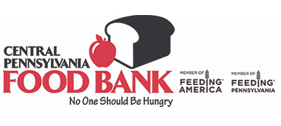The United States Department of Agriculture (USDA) recently introduced a proposed rule that would severely restrict eligibility for the Supplemental Nutrition Assistance Program (SNAP). If implemented, this rule would result in three million individuals around the country losing SNAP and 500,000 children losing access to free school meals. The new rule would particularly harm working families with children whose net incomes are below the poverty line, and families and seniors with even a small amount of savings.
For example, a single mom with two kids who works full-time for $12.50 an hour is eligible for about $160 a month in SNAP benefits. Let’s imagine she got a 50-cent-per-hour wage increase. Her earnings would increase by $86 per month which pushes her earnings slightly over the income threshold. In the absence of broad-based categorical eligibility, she would no longer be able to participate in SNAP because her income is slightly above 130 percent of the poverty line. By gaining $86 per month in earnings but losing $160 a month in SNAP her and her family are worse off. Under broad-based categorical eligibility, this mom would still have access to SNAP. Her benefits would be reduced by $30 per month due to her increased earnings, but her family would still be $55 per month better off overall.
Over 45,000 hard-working members of our central Pennsylvania community are in danger of losing critical support that helps them provide proper nutrition for themselves and their children.
The food bank and its partner agencies alone cannot meet the community’s needs without key nutrition assistance programs. For every meal the food bank provides, SNAP buys the groceries for nine meals. We should not support policies that punish people when they try to do the right thing by working more hours, getting a better-paying job, or saving money. This runs counter to the intended benefit of these temporary assistance programs.
Your comments could sway the outcome of this proposed change to the SNAP program. Please submit your concerns to the USDA and share with the USDA why the availability of SNAP is so important to you and our community! Click here to comment.
Below you can read the Central Pennsylvania Food Bank’s comments to the USDA about this proposed rule change.
The Central Pennsylvania Food Bank strongly opposes the proposal to severely restrict Broad-Based Categorical Eligibility for SNAP recipients. This proposed rule will increase the rate of hunger and food insecurity in central Pennsylvania and around the country by taking food off the tables of working individuals and families, children, seniors, and people with disabilities. These changes will affect over 45,000 people in central Pennsylvania and will create a sicker and poorer community by denying struggling households the food assistance they need for a healthy, productive life.
The proposed rule will put children’s health and learning at risk by removing their access to healthy school meals. Individual children will face hunger, and whole schools could lose their community eligibility provision for the free lunch program. Childhood hunger is linked to academic struggles, difficulties focusing and concentrating, mental health disorders, and increased behavioral referrals. Many schools will struggle to meet the educational, health, and mental health needs of the students who lose SNAP benefits and access to school meals. Broad-Cased Categorical Eligibility can be used to soften the blow of the benefits cliff, ensuring SNAP benefits slowly taper off rather than stop abruptly. This prevents a situation where a higher paying job or more work hours results in a lower household budget.
For example, a single mom with two kids who works full-time for $12.50 an hour and spends about $1,200 a month on rent has an income up to about 125 percent of the poverty line. In this situation, she is eligible for about $160 a month in SNAP benefits. Let’s imagine she got a 50-cent-per-hour wage increase. Her earnings would increase by $86 per month and which pushes her earnings slightly over 130 percent of the poverty line. In the absence of broad-based categorical eligibility, she would no longer be able to participate in SNAP because her income is slightly above 130 percent of the poverty line. By gaining $86 per month in earnings but losing $160 a month in SNAP her and her family are worse off. Under broad-based categorical eligibility, this mom would still have access to SNAP. Her benefits would be reduced by $30 per month due to her increased earnings, but her family would still be $55 per month better off overall.
The proposed rule will also increase pressure on hunger-relief organizations like the Central Pennsylvania Food Bank. Currently, for each meal provided by the network of Feeding America food banks – of which the Central Pennsylvania Food Bank is a member – SNAP provides nine meals. Private charity simply cannot compensate for the breadth of the impact of cuts being proposed and harmful proposals like these will stretch the capacity of the Central Pennsylvania Food Bank and impact our ability to feed every hungry family in our community.
The Supplemental Nutrition Assistance Program is a benefit, not a burden. As it helps people strengthen their grocery buying power it boosts the local economy, especially for grocery retailers and agricultural producers. For every dollar invested in SNAP benefits, there is a $1.79 increase in economic activity.
By restricting categorical eligibility, people will not only have a disincentive to work but will be punished when they try to do the right thing by working more hours, getting a better-paying job, or saving money. This runs counter to the intended benefit of these temporary assistance programs. We urge the Administration to rescind the rule and instead work to increase SNAP participation so more families can worry less about putting food on the table and focus more on getting back on their feet.
